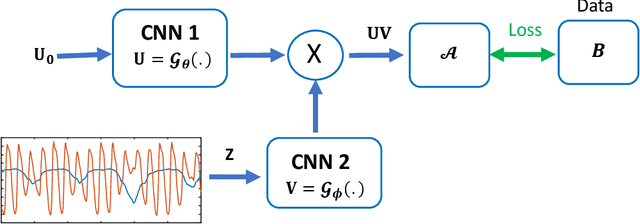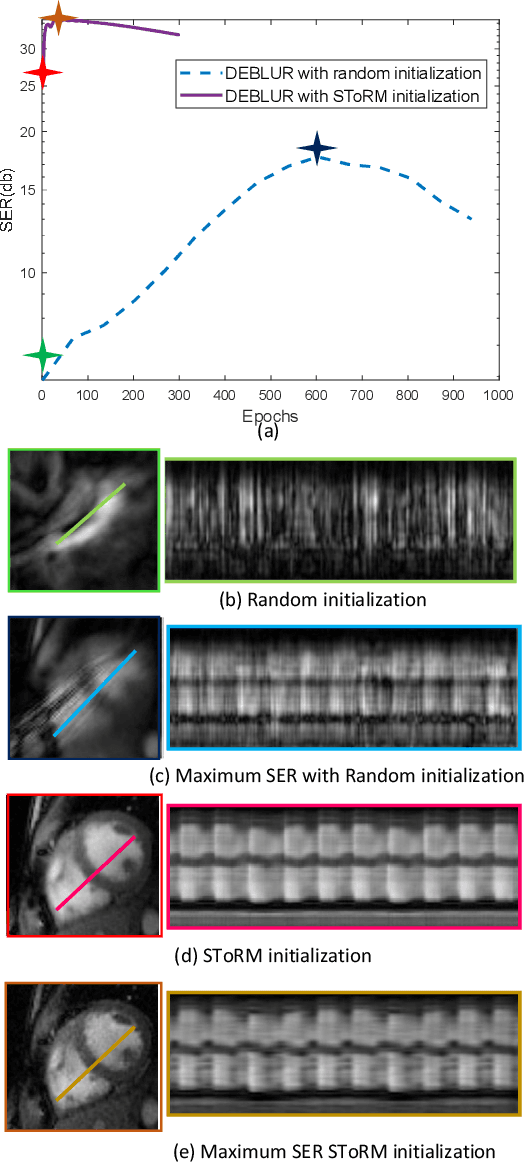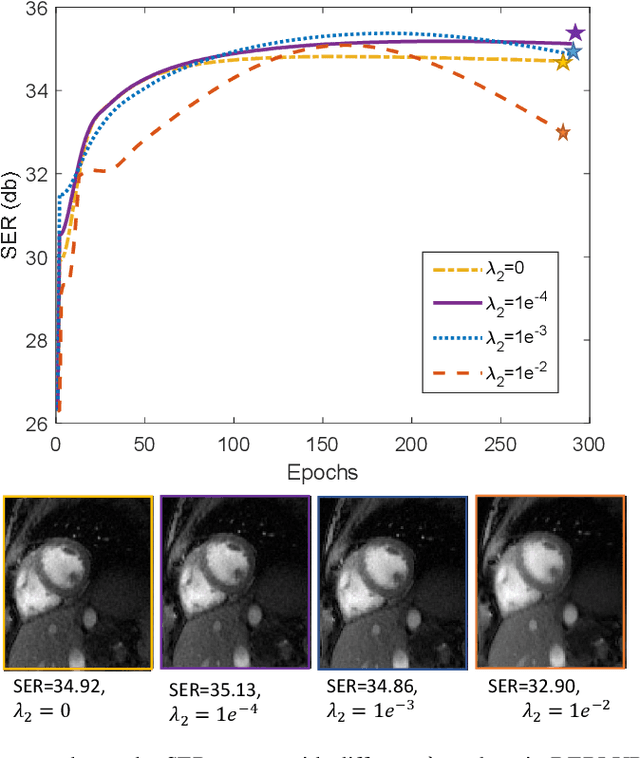Dynamic Imaging using Deep Bi-linear Unsupervised Regularization (DEBLUR)
Paper and Code
Jun 30, 2021



Bilinear models that decompose dynamic data to spatial and temporal factors are powerful and memory-efficient tools for the recovery of dynamic MRI data. These methods rely on sparsity and energy compaction priors on the factors to regularize the recovery. The quality of the recovered images depend on the specific priors. Motivated by deep image prior, we introduce a novel bilinear model whose factors are represented using convolutional neural networks (CNNs). The CNN parameters are learned from the undersampled data off the same subject. To reduce the run time and to improve performance, we initialize the CNN parameters. We use sparsity regularization of the network parameters to minimize the overfitting of the network to measurement noise. Our experiments on free breathing and ungated cardiac cine data acquired using a navigated golden-angle gradient-echo radial sequence show the ability of our method to provide reduced spatial blurring as compared to low-rank and SToRM reconstructions.
 Add to Chrome
Add to Chrome Add to Firefox
Add to Firefox Add to Edge
Add to Edge